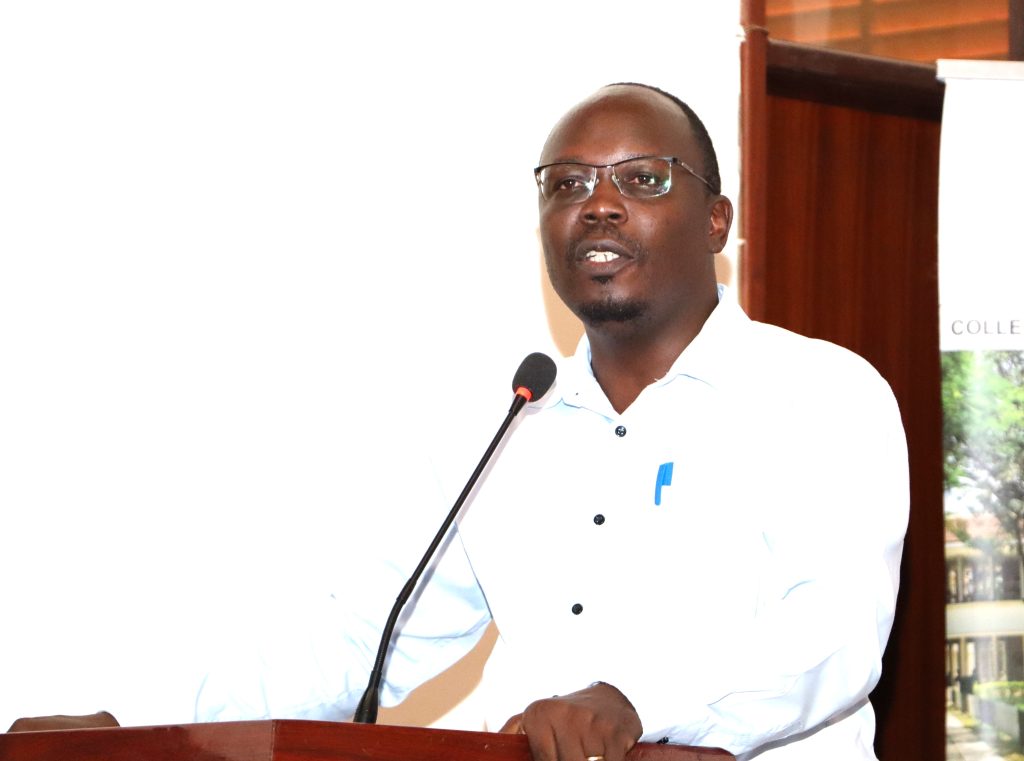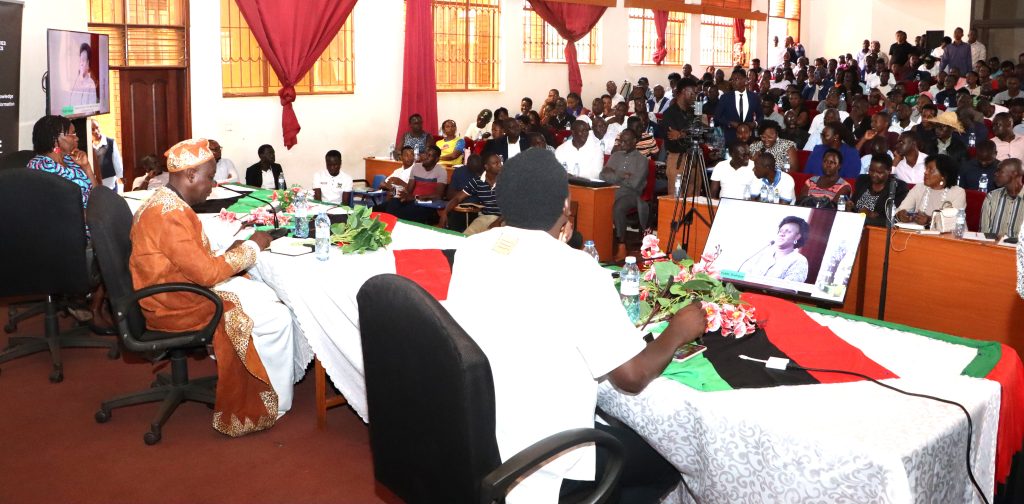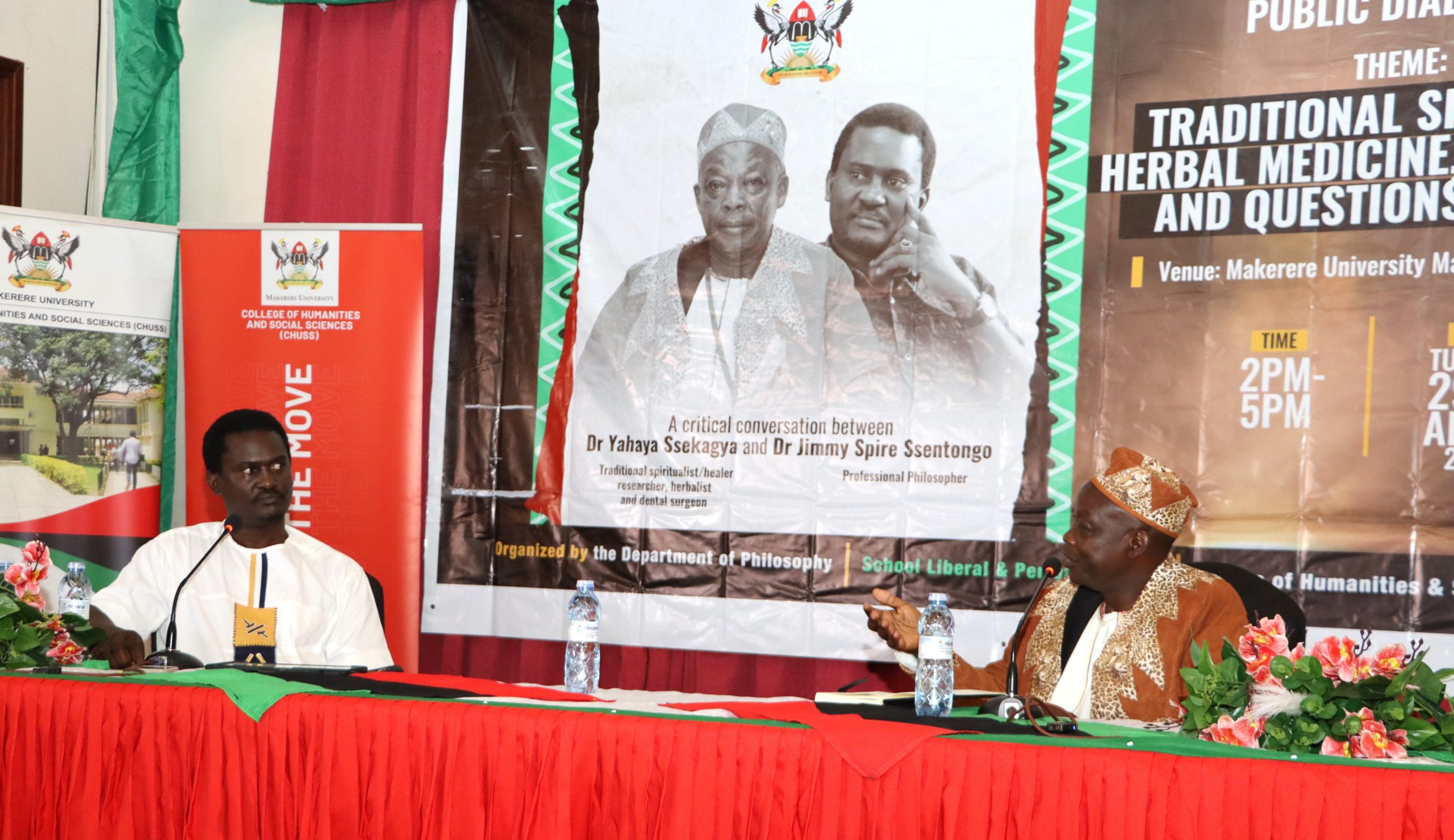Questioning the Scientific Method and Medical Colonialism
Dickson Kanakulya, Head of the Department of Philosophy at Makerere University, issued a critique of society’s fear of “uncomfortable knowledge” and positioned Makerere as a courageous leader in pushing intellectual frontiers that others fear to approach.
“Makerere is not fearful to explore all aspects of knowledge,” Dr. Kanakulya declared. “That is what has made this institution great—we ask the questions that others are afraid to ask.”

The event—attended by over 2,000 people both in-person and online—was part of a growing series of intellectual forums led by the College of Humanities and Social Sciences (CHUSS) that challenge conventional paradigms of science, truth, and African knowledge systems.
Dr. Kanakulya used the platform to interrogate the longstanding hierarchies that have historically labeled indigenous knowledge as superstition or witchcraft. He drew attention to how rituals, symbols, and metaphysical practices in African traditions have been ridiculed, while similar elements in Western religious and scientific institutions are normalized or revered.
“Why is it that when a Pope wears red or conducts elaborate rituals, it’s considered sacred—but when an African elder wears a leopard skin, it’s ‘witchcraft’?” he asked. “What is the psychoanalytic message behind those colors, garments, and rituals?”
Referencing comparative burial rituals—from Vatican ceremonies to the traditional burial of a Omutaka wrapped in over 200 barkclothes—he questioned the global double standards that determine which practices are called ‘holy’ and which are dismissed as irrational.
“We are not just asking religious questions—we are asking epistemological questions: who defines what knowledge is, and who gets excluded?”
Perhaps most provocatively, Dr. Kanakulya challenged blind reliance on what he called the “so-called scientific method,” especially in light of the global COVID-19 pandemic.
“COVID-19 raised a very serious question: does the scientific method work?” he asked. “When the pandemic struck, even our most decorated scientists ran and hid. Vaccines were promised, but not available. And yet, African herbal knowledge—like Professor Ogwang’s COVIDEX—saved lives.”
He praised Ogwang’s use of traditional medicinal knowledge passed down by his mother to develop a treatment that gained national certification and public trust during the health crisis, even while being initially discouraged by the scientific establishment.

Kanakulya described this contradiction as “medical colonialism”—a phenomenon where Western institutions continue to control narratives around health, healing, and legitimacy, despite relying on indigenous knowledge for drug development.
“Over 60% of pharmaceutical drugs have roots in traditional herbal medicine. Yet we are told the version made in the lab is superior to the one made by God. Why?”
Echoing themes from thinkers like Descartes, Richard Rorty, and Albert Einstein, Dr. Kanakulya urged attendees to reconsider the very nature of knowledge and reality. He connected traditional African metaphysics to emerging fields like quantum physics, highlighting how both challenge fixed notions of objectivity and material reality.
“Traditional African science believes that molecules and cells are constantly absorbing information—through light, sound, and energy. That’s what quantum mechanics now confirms,” he explained. “When elders say a stone remembers what happened, and science says DNA remains at crime scenes, are we not talking about the same phenomenon through different lenses?”
He raised challenging philosophical comparisons: summoning a person’s spirit in a water basin vs. seeing their face on a smartphone screen. Both, he argued, deal with unseen connections and transmissions of information. So, which one is called witchcraft—and why?
“The question of witchcraft is a question of epistemology. It’s not just a cultural issue; it’s about how we define reality and truth. It is time to decolonize those definitions.”
Kanakulya also connected philosophical inquiry to policy questions, especially the right to health in African constitutions. He noted that 80% of Africans rely on traditional medicine, yet it remains underfunded, un researched, and stigmatized.
“If the right to health is a human right, then herbal medicine must be mainstreamed,” he said. “We cannot continue to rely on knowledge produced in Western laboratories when we have solutions rooted in our own environment and history.”
Citing rising rates of non-communicable diseases among Africans under 30, he warned that Africa’s future is being shaped by pharmaceutical industries and researchers who are not accountable to local communities.
“They have our DNA in labs. They are designing drugs for African genes. That is medical colonialism. And you think you are free because you raise a flag on Independence Day?”
Dr. Kanakulya concluded with a call to embrace philosophy as a tool for critical inquiry and emancipation.
“Philosophy asks the uncomfortable questions. Are you in love or are you dreaming? Are you alive or are you merely existing under illusions passed down to you?”
He urged the academic community to take seriously African forms of knowledge—including metaphysical and spiritual practices—and to move beyond outdated colonial binaries of science vs. superstition.
“Witchcraft is not just in shrines. It’s in churches, markets, and technology. The real question is not whether it exists—but how we understand it, and what truths we are afraid to see.”
The remarks set a powerful tone for the evening’s dialogue and reinforced the role of the Department of Philosophy as a leading voice in deconstructing knowledge hierarchies at one of Africa’s oldest universities.

